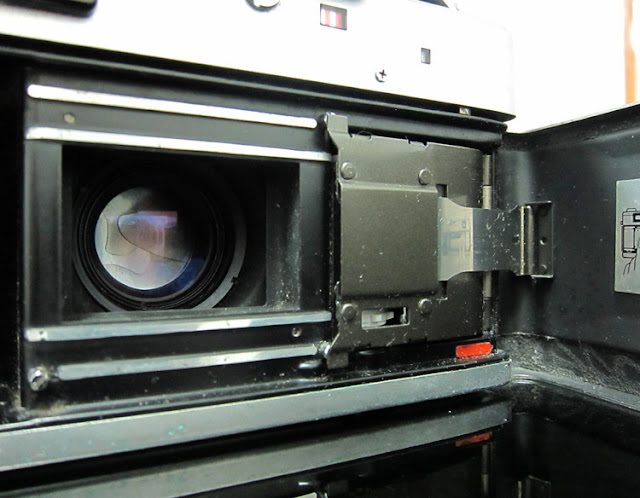The camera was about 20 mm narrower, 4 mm shorter, and 30 percent lighter than the previous Canonet. To make it more compact, the lens focal length was shortened to 40mm, resulting in a wider angle lens. A Speedlite (Canolite D) which did away with complicated Guide No. calculations was also introduced. The flash aperture was set automatically to suit the flash output and subject distance. This was the fully-automatic flash system called CATS (Canon Auto Tuning System) incorporated for the first time.
With this feature, picture-taking with EE was completely automatic for both night and day.
Guide Number (GN) indicator in aperture ring for flash photograpy (see photo bellow)
Type | 35mm Lens-Shutter rangefinder camera with shutter speed-priority EE |
| Picture Size | 24 x 36 mm |
| Lens | 40mm f/1.7 (6 elements in 4 groups) |
| Shutter | Copal with B, 1/4 sec. to 1/500 sec., X-sync. Built-in self-timer. Hot shoe and German socket for automatic flash. |
| Viewfinder | Coincidence rangefinder integrated with reversed Galilean viewfinder. Automatic parallax correction with projected frames and marked finder. 0.6x magnification. On the right within the image area are the aperture scale, meter needle, overexposure and underexposure warnings, and battery check zone. |
| EE | CdS cell for shutter speed-priority EE. Manual exposure enabled by disabling AUTO. Metering range of EV 3.5 - 17 (at ISO 100). Film speed range of ISO 25 - 800. |
| Power Source | One 1.3 V H-D mercury cell. Battery check provided. |
| Film Loading & Advance | After opening camera back, align film leader at mark then advance to first frame with Quick Loading (QL) system. Advances with camera-top lever's 120° single stroke. Ready position at 26°. Partial strokes not enabled. |
| Frame Counter | Counts up. Resets automatically when camera back is opened. |
| Film Rewind | Camera-top crank |
| Dimensions & Weight | 120 x 75 x 60 mm, 620 g |






No comments:
Post a Comment